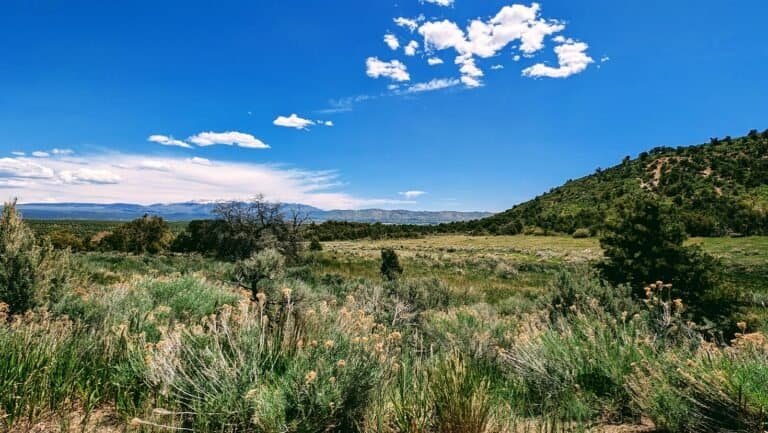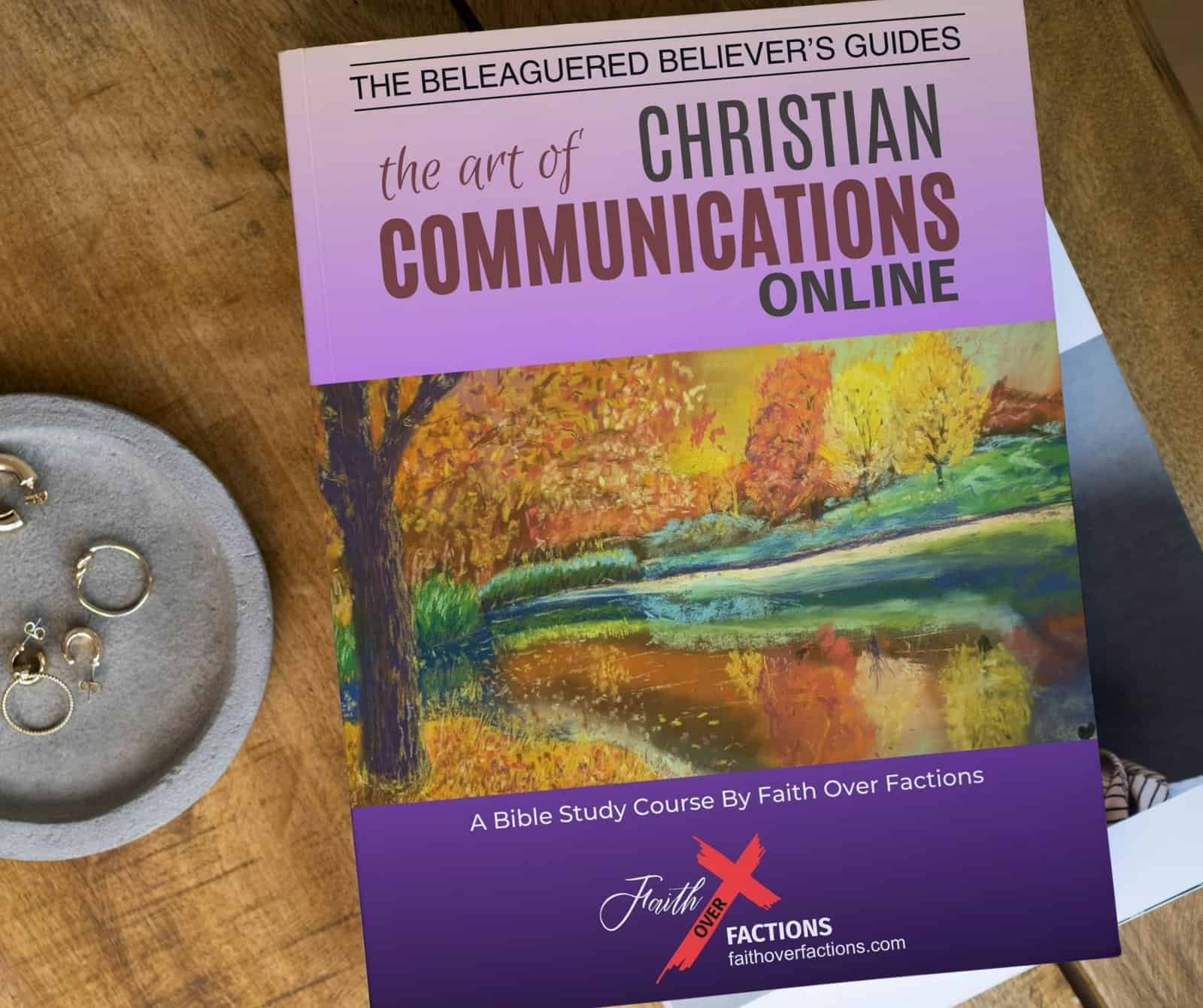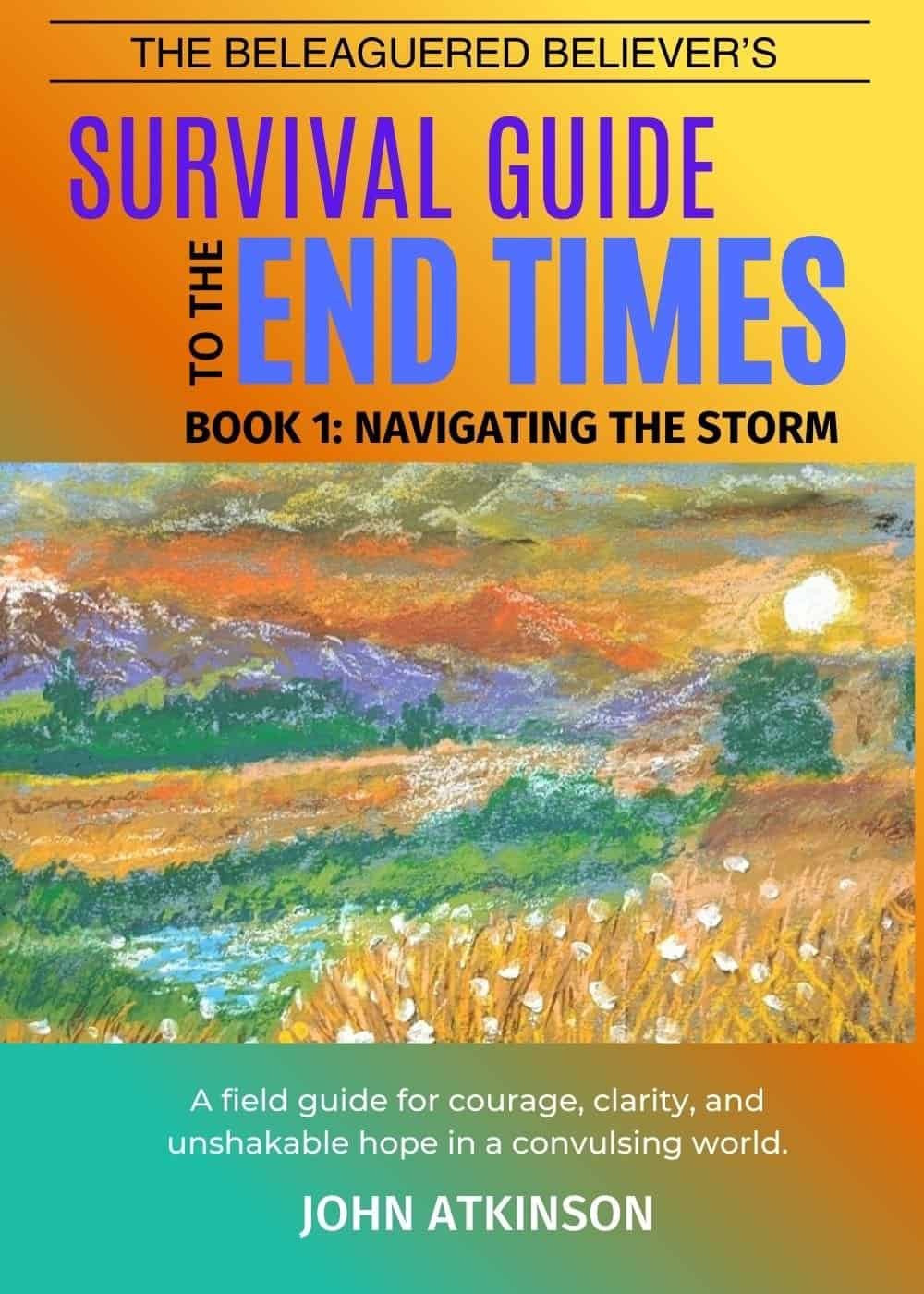

God’s promises often shine brightest in our darkest seasons. In Genesis 15–17, Abram walks through uncertainty, fear, and failure—yet still finds himself wrapped in covenant. When faith flickers and timelines stretch, God doesn’t withdraw. He binds Himself to the promise with blood, renames Abram, and marks the beginning of a legacy through a childless man. This Mile Marker reminds us: waiting is not the absence of movement—it’s the invitation to deeper trust. If you’ve ever questioned whether God still sees you, this is your reminder: His promises hold, even when your grip loosens.
“Abram believed the Lord, and the Lord counted him as righteous because of his faith.”
Genesis 15:6, (NLT)Some promises shine brightest when everything else has gone dark. Genesis 15–17 follows Abram—not as a man of unshakable certainty, but as a pilgrim weighed down by waiting. God's call had come. Abram had obeyed. Yet years passed, and the promised child, the promised land, the promised future all seemed as distant as the stars overhead. This Mile Marker invites us to linger in the hard space between promise and fulfillment—where doubt whispers, shortcuts tempt, and yet grace stubbornly holds ground in the silence.
After rescuing Lot and refusing the spoils of war, Abram fears retaliation. He has stood on principle—but now he stands vulnerable. In this moment of uncertainty, God appears and reassures him with tender authority: “I am your shield, your very great reward” (Gen 15:1). God's reward is not material—it's Himself. Presence, not possessions. Protection, not politics.
Abram speaks honestly—he remains childless. How can promises be fulfilled if he has no heir? There is no anger in God’s reply. Instead, He offers a vision of wonder. God invites Abram to look upward and count the stars—an impossible task—then promises: “That’s how many descendants you will have” (Gen 15:5). Abram believes, and that belief is counted as righteousness (Gen 15:6). This is the heartbeat of biblical faith: trust, even when the numbers don’t add up.
God repeats His promise of land, and Abram, bold in vulnerability, asks for assurance. God's response is not a lecture but a ceremony. Animals are split in two, and as darkness falls, God alone passes between the pieces in a smoking firepot and a blazing torch. This was God’s way of saying: “I will bear the cost of this promise.” It is a covenant not of mutual obligation, but of divine commitment (Gen 15:9-21).
Years pass. Sarai, still barren and weary of waiting, takes matters into her own hands. She offers Hagar, her Egyptian servant, to Abram as a surrogate wife (Gen 16:1-3). Hagar conceives, but the household is thrown into emotional chaos. Jealousy, blame, and power imbalance erupt. Sarai mistreats Hagar, who flees into the wilderness.
In the desert, Hagar encounters the God who sees. He does not abandon her. Instead, He names her son Ishmael—“God hears”—a prophetic reminder that even in exile, God listens to the cries of the unseen (Gen 16:11). Hagar becomes the first person in Scripture to give God a name: El Roi—the God who sees me.
When Abram is 99 years old, God appears again—not with scorn for the past but with new purpose. He changes Abram’s name to Abraham—“father of many nations”—and Sarai becomes Sarah. This is more than semantics—it is divine authorship rewriting identity. Circumcision is instituted as the sign of this covenant, marking Abraham’s household with a lasting, embodied reminder of the blood-bound promise (Gen 17:1-14).
In Abram’s world, family meant survival. Lineage secured legacy. Children were currency—not just emotionally, but economically and spiritually. To be childless was not just painful—it was perilous. It meant your name, memory, and meaning would vanish when you died.
God’s call didn’t just ask Abram to leave a place—it asked him to leave an entire identity system. To leave homeland was to leave gods. In the ancient Near East, deities were considered territorial. Crossing a border meant crossing out of divine jurisdiction. But this God—the God who calls and covenants—refuses to be localized. He travels with Abram. He speaks in foreign soil. He promises destiny beyond bloodlines and borders.
Covenants in Abram’s time were serious, bloody, and often transactional. But God’s covenant flips the pattern: He doesn’t demand allegiance first—He gives assurance first. God binds Himself with the imagery of death—not to punish Abram, but to comfort him. This is a relationship rooted not in fear, but in fidelity. Not in threat, but in trust.
To an old man with no child and no land, this promise is almost cruel in its hope. And yet, this is how God works: promises that pierce despair like light splitting night.
Hagar is often treated as a side character—but her story matters deeply. She is an enslaved Egyptian woman, given as a human solution to a divine delay. She becomes pregnant, mistreated, and eventually cast out. She flees not just a household, but a system of control that saw her body as a means to an end.
In the silence of the desert, God finds her. Not Abraham. Not Sarah. Hagar. And she becomes the first person in Scripture to give God a name: El Roi—The God Who Sees Me (Gen 16:13).
This moment flips every social script. A marginalized woman in exile becomes a prophetic voice. Her pain is not overlooked. Her existence is not a subplot. Her encounter testifies to a truth Abram’s covenant echoes: the God of promises is also the God of the unseen.
Abram's faith flickers in the long silence between God's promises and their visible fulfillment. He is not rebellious—he’s just worn down. Time stretches faith thin. The hope that once soared now limps. The call that once sparked joy now echoes with silence. It’s not disbelief—it’s fatigue in the face of mystery.
Many of us know that feeling: when we’ve said yes to God, walked forward, and then... nothing. Delay becomes disillusionment. Trust starts to rot at the edges. The very promises that once gave us purpose begin to feel like burdens. Like Abram, we ask quietly, “What good are Your words if nothing changes?”
Long waits breed quiet questions: Is God really going to do it? Does He still remember? Maybe I’m supposed to take initiative. Maybe faith looks like doing something about it myself. That drift—from trust to control—is subtle, but devastating.
Sarai’s plan is not cruel—it is desperate. She offers Hagar to Abram, not to be vindictive, but because she believes it might be the only way forward. She’s trying to rescue God’s promise with human hands. And in doing so, she sets off a chain reaction of jealousy, pain, and spiritual fracture.
What starts as a solution ends in sorrow. Hagar, now pregnant, finds herself caught between Abram’s silence and Sarai’s resentment. The household becomes a war zone. Generational wounds are planted in soil watered by fear. These choices—born from control, not trust—echo far beyond a single family.
This story isn’t just about ancient people. It’s about us. Every time we try to “help God out” of anxiety or impatience, we risk creating wounds that outlast our circumstances. The silence we fear most is often where God is doing His deepest work.
The covenant ceremony in Genesis 15 is no mere ritual—it is a divine vow written in shadow and fire. In ancient Near Eastern treaties, both parties would walk between the carcasses of slaughtered animals, declaring with their steps: “May this happen to me if I break the covenant.” But in this story, only God walks the path. Abram watches in darkness as a smoking firepot and blazing torch—symbols of God's presence—pass between the pieces (Gen 15:17).
This moment is not just symbolic. It is prophetic. God declares that He—not Abram—will bear the weight of both faithfulness and failure. If Abram’s descendants break the covenant, God will still uphold it. And centuries later, on a different hill, God Himself will be torn for the unfaithfulness of His people. The path between the animals leads us to the cross, where the covenant is fulfilled not with fire, but with flesh.
In Genesis 17, circumcision is given as the visible sign of this blood-bound promise. It is painful, permanent, and deeply personal. It marks not only the body, but the identity of Abraham and his household. Through this sign, they carry the covenant in their flesh—a reminder that belonging to God always costs something.
In the New Testament, Paul reframes circumcision as a matter of the heart. Through Christ, we are marked not by what is cut away from our bodies, but by what is transformed within us: “A true Jew is one whose heart is right with God. And true circumcision is not merely obeying the letter of the law; rather, it is a change of heart produced by the Spirit” (Romans 2:29, NLT).
Circumcision was a shadow; Christ is the substance. What was once a bloody sign on the outside becomes a living seal on the inside—evidence of a covenant written in mercy and fulfilled in Christ's body on our behalf.
Genesis 15–17 doesn't offer a tidy conclusion—it invites us into tension. Abram believes, then questions. Sarai hopes, then takes control. God speaks, then goes silent for years. This is not a story of perfect faith. It’s the story of faith surviving long enough to hear God speak again.
Waiting tests what we really believe about God. Do we trust that He sees what we can’t? That He’s still working even when we see no movement? Or do we slip into quiet despair, assuming delay means denial?
In the ache of waiting, shortcuts beckon. There’s always a Hagar—some culturally acceptable workaround that offers relief without surrender. But every shortcut leads us further from the stillness where trust is born. The Living God is not in a hurry, and His timing is not broken. What feels late is often perfectly on time.
Ask yourself: What am I tempted to fix on my own? Where am I reaching for a solution God hasn’t sanctioned?
Abram’s strength wasn’t in his clarity. It was in his return. Every time the promise dimmed, he built another altar. Every time he faltered, he listened again. Faith is not the absence of questions—it’s the decision to stay in conversation with God even when there are no answers.
God didn’t withdraw when Abram wavered. He drew nearer. He reaffirmed. He renamed. And He does the same for us—meeting us in our wildernesses and renaming us according to His promise, not our performance.
Genesis 15–17 invites us to wait differently—not with clenched fists, but with open hands. Not with frantic striving, but with expectant surrender. Let the God who sees you hold what you can no longer carry.
Look up. Count the stars again. They’re still there. And so is He.
The story doesn’t wrap with celebration—it lingers in the ache of transformation. The promise is spoken, but not yet seen. The covenant is sealed, but the path ahead still winds through uncertainty.
And yet—God remains. Still faithful. Still near. Still speaking, even in silence.
He walks through the pieces of the covenant alone, taking upon Himself the weight of our doubts, our stumbles, our shortcuts. He carries both the cost and the fulfillment. When we fall asleep in fear, He moves in fire. When we fail in patience, He answers with mercy.
The waiting does not disqualify you. The wrestling does not dismay Him. The long night of your faith is not wasted—it’s where stars begin to shine.
You are not behind schedule. You are beneath the stars of a faithful God.


The Art of Christian Communications Online
Download The Art of Christian Communication Online—a free guide & workbook to help believers communicate with truth, empathy, and grace in every online conversation.
No email address required.

Find strength for weary days.
Download Everyday Endurance: Walking With Jesus in Unsteady Times
—a free devotional guide & workbook to help you build spiritual and emotional resilience through prayer, reflection, and daily trust in God.
No email address required

The Survival Guide for Beleaguered Believers is here—offering strength when systems fail, clarity whenlies spread, and hope that endures when the world seems out of control.
Don’t just survive the chaos—stand firm in Christ.
📖 Always free with Kindle Unlimited. Available in paperback and hardcover as well!
Ministries We Endorse
“So pray to the Lord who is in charge of the harvest; ask him to send more workers into his fields.”
-Matthew 9:38

All Site Photography Originals from John's wanders unless noted.
Scripture quotations marked (NLT) are taken from the Holy Bible, New Living Translation, copyright © 1996, 2004, 2015 by Tyndale House Foundation. Used by permission of Tyndale House Publishers, Carol Stream, Illinois 60188. All rights reserved.
We completely recommend E-Sword, a Free Study Bible available for most mobile and desktop platforms.